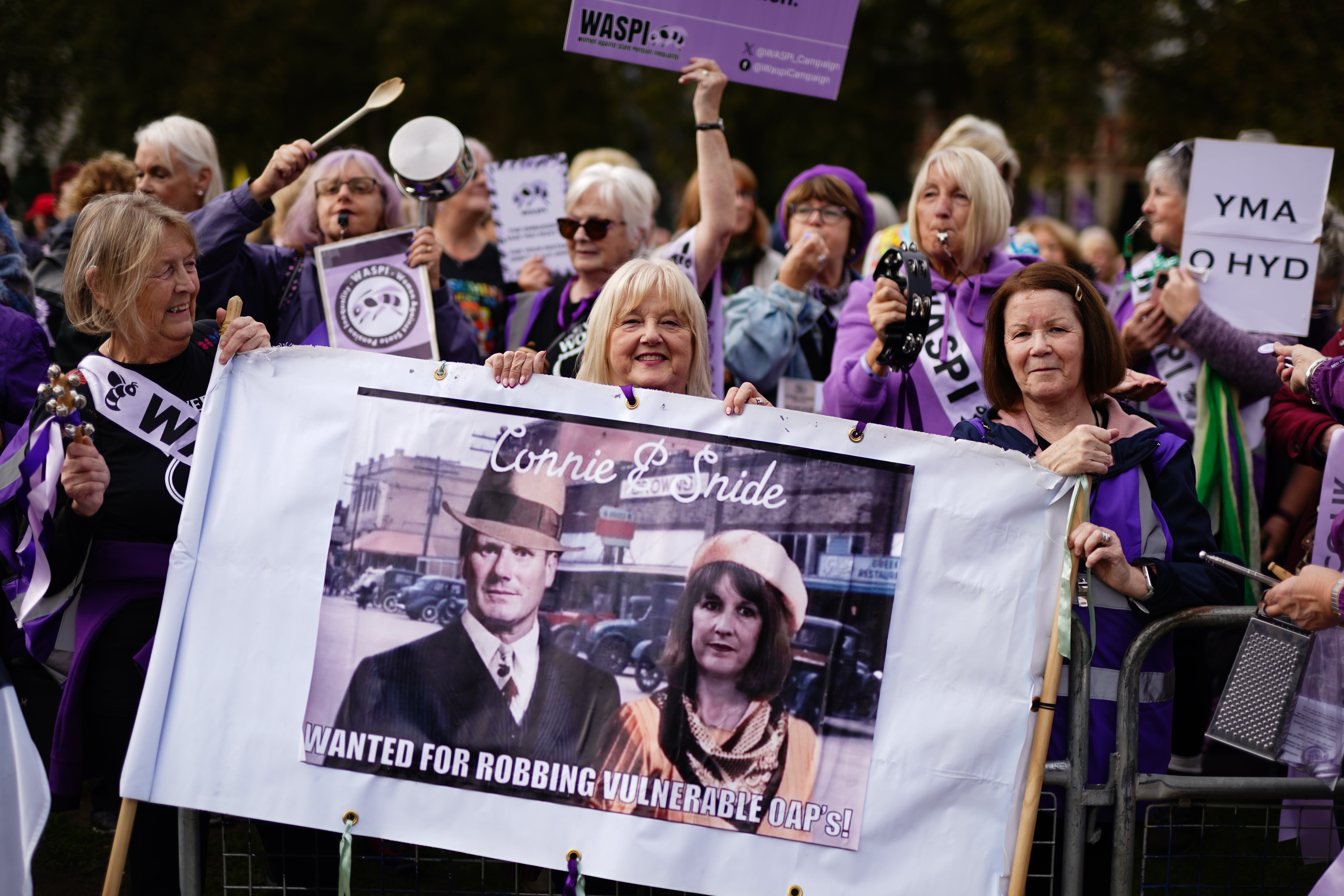Sir Keir Starmer has provoked outrage among the Waspi women after he appeared to point the finger of blame at them over Labour’s decision not to pay them compensation over changes to their pensions.
Less than 24 hours after ministers announced women born in the 1950s would not receive a payout, despite it being recommended by an ombudsman, the prime minister was pressed on the issue by angry MPs in the Commons.
Despite having claimed while in opposition that the changes were an “injustice” that needed to be redressed, Sir Keir doubled down on comments by chancellor Rachel Reeves that affected pensioners knew about the changes and therefore should not receive compensation.
He said: “The research shows... that 90 per cent of those impacted knew about the changes that were taking place.”

Angela Madden, chair of the Women Against State Pension Inequality (Waspi) campaign group, said: “This isn’t just misleading; it’s an insult to millions of 1950s-born women who were blindsided by these changes.”
In March, the Parliamentary and Health Service Ombudsman (PHSO) recommended the government pay compensation to women born in the 1950s whose state pension age was raised from 60 to 65 so it would be equal with men. It said the women should get up to £2,950 each, a package with a potential total cost of £10.5bn to the public purse, as poor communication meant they had lost out on the chance to plan their retirement finances.
Ms Madden said the ombudsman’s findings “were based on rigorous evidence showing that 60 per cent of women had no idea their own state pension age was rising”, adding: “The government’s attempt to cherry-pick data to suggest otherwise is spreading dangerous misinformation, plain and simple.
“The fact that 90 per cent of women had some general awareness of potential changes in the future does not mean they knew this would impact them personally. That is exactly why the ombudsman identified maladministration and why this government’s continued attempts to muddy the waters are so unacceptable.”

She went on: “Keir Starmer has not heard the last of this issue. The Labour government must act now to address this injustice.”
The anger was compounded by historic clips circulating on social media of Labour ministers including Angela Rayner, Yvette Cooper, work and pensions secretary Liz Kendall and Ms Reeves making the promise to pay compensation.
Meanwhile, Rebecca Hilsenrath, the ombudsman, told Times Radio: “What we don’t expect is for an acknowledgement to be made by a public body that it’s got it wrong but then refuse to make it right for those affected.”
Leading the criticism at PMQs was Tory leader Kemi Badenoch who linked it to the decision to end winter fuel payments and said Sir Keir “had broken the trust with pensioners”.
The “betrayal” has been linked to a series of other U-turns over abolishing the two-child benefit cap, scrapping tuition fees, protecting farmers, not raising national insurance and being pro-business among others.
Veteran Labour MP Diane Abbott said: “The Waspi women fought one of the most sustained and passionate campaigns for justice that I can remember. We did promise them that we would give them justice.
“Does the prime minister really understand how let down Waspi women feel today?”

Plaid Cymru MP Ben Lake (Ceredigion Preseli) asked Sir Keir: “In 2022, the prime minister supported calls for fair and fast compensation for 1950s women impacted by the changes to the state pension. And yet just yesterday his government rejected those same calls out of hand. Is this what the prime minister meant when he promised to lead a government of change?”
Sir Keir replied: “This is a serious issue. Between 2005 and 2007 there was, I think, a 28-month delay in letters to women born in the 1950s about changes to pension age. That was unacceptable and it was right that the government apologised for that.
“In 2011, the former chancellor George Osborne accelerated those changes with very little notice, that equally was unacceptable and Labour opposed it at the time. It is a serious issue, it is a complex issue, the research shows, as he knows, that 90 per cent of those impacted knew about the changes that were taking place.
“And I’m afraid to say that taxpayers simply can’t afford the tens of billions of pounds in compensation when the evidence shows that 90 per cent of those impacted did know about it, that’s because of the state of our economy.”







